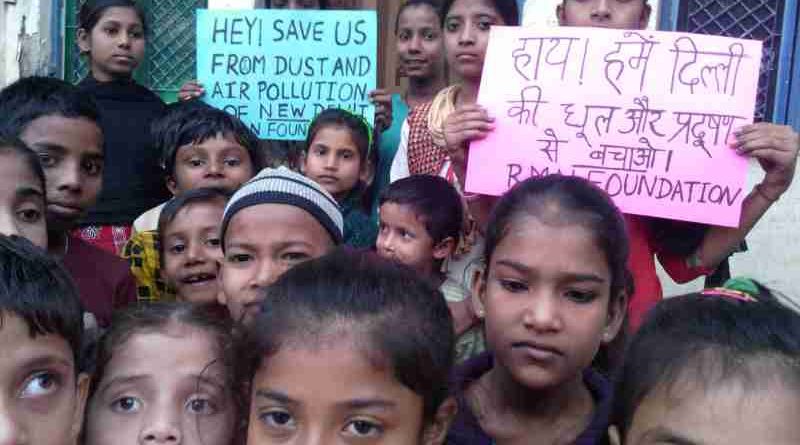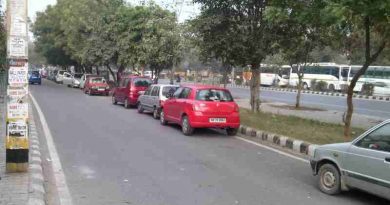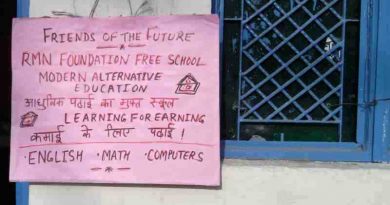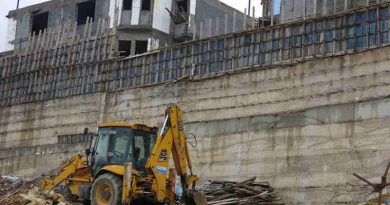Delhi Residents Unite to Stop Construction and Pollution in Dwarka
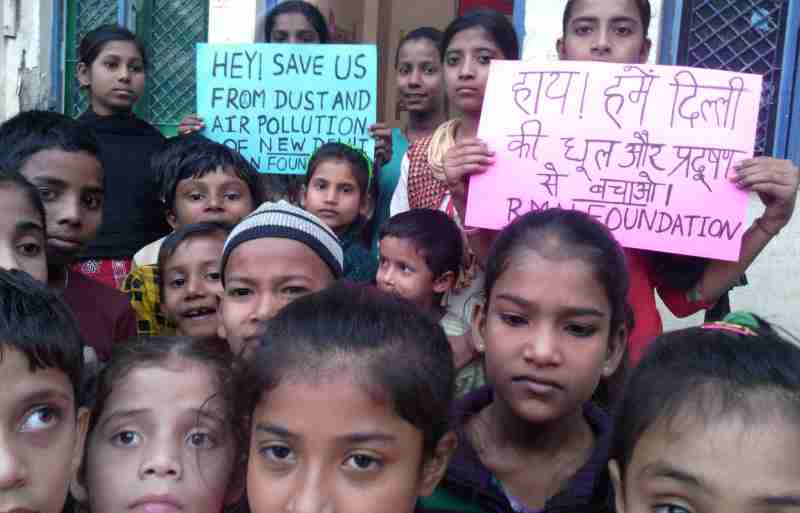
The residents of Dwarka in Delhi have launched a mass signature campaign to oppose the extended construction activity in the group housing societies.
By Rakesh Raman
In order to protect the environment from dust and noise pollution, the residents of Dwarka have launched a mass signature campaign to oppose the extended construction activity in the group housing societies.
Launched today (March 18, 2017), the campaign will sensitize the general public about the health hazards of extended construction.
Although all forms of pollution such as air pollution, dust pollution, noise pollution, water pollution, littering, and thermal pollution are hazardous for humans, people are facing an immediate threat from dust and noise pollution in Dwarka, which is a huge residential area in Delhi.
With a population of more than 1 million, Dwarka is said to be the largest residential suburb in Asia, with a total of 1718 residential enclaves.
And now to further exacerbate the already alarming pollution situation in Delhi and particularly in Dwarka, group housing societies are carrying out unchecked construction activity to extend their existing buildings while people are still living in those buildings.
The additional dust pollution in the inhabited housing complexes is like adding fuel to the fire, as people are already experiencing enormous health risks because of environmental pollution.
Besides dust pollution, the construction activity also causes noise pollution with constant hammering in houses. It will obviously disturb sick and elderly residents (senior citizens) as well as students who stay at their homes.
The campaign aims to draw the attention of the government, law-enforcement agencies, and rights groups toward pollution perils so that they should take necessary steps to stop the extended construction activity in Dwarka.
Related Editorial Section
[ Save Delhi – MCD Election News 2017 ]
Besides highlighting the construction-related pollution issues, the campaign also informs about the adverse socio-economic impacts of such a greed-driven construction plan on the cooperative culture in group housing complexes.

While the residents want to live in a clean, pollution-free environment, they hope that the government will not allow any such building extension projects as they are going to be hazardous to human health and lives.
People in Dwarka and other parts of Delhi are invited to participate in the campaign. They can fill up the online form to provide their details.
Alternatively, they can download the signature form, sign it, and get it signed from others in their localities, and send it by post at the following address. The individual coordinators may please write their name, address, mobile phone number, and email at the back of the signed form.

The campaign also invites volunteers from Dwarka and other parts of Delhi to extend their services for this cause intended to save human lives from harmful pollution.
Campaign Coordinator
463, DPS Apartments, Sector 4
Dwarka, New Delhi 110 078, India
Effect of Air Pollution on Climate Change
Top researchers show that there are interlinkages between greenhouse gases, climate change and air quality. Many air pollutants that are harmful to human health and ecosystems also contribute to climate change.
Apart from vehicular pollution, there are damaging thermal effects of dust on climate. Research reveals that dust-related atmospheric aerosol pollution has a hazardous effect on climate.
In India, the National Green Tribunal (NGT) has also observed that one of the major sources of air pollution is dust emission from construction activities, which must be stopped to avoid pollution-related diseases and deaths.
But since most Indian citizens and government officials lack understanding of the climate change subject and its linkages with air and dust pollution, they are hell-bent to destroy the environment with a blatant disregard to Indian government’s environmental policies and its commitments to the global community.
Commitment of the Indian Government
At the conclusion of the Paris Climate Change Conference called COP21, India’s Prime Minister (PM) Narendra Modi had said that climate justice has won. Later, in September 2016, the Union Cabinet of India chaired by Mr. Modi had given its approval to ratify the Paris Agreement on Climate Change.
Recalling the Prime Minister Modi’s desire to make the country proud in the global arena, Environment Minister Anil Madhav Dave also said in March 2017 that the government will never compromise the environmental interests of India at international negotiations.
Similarly, Dr. Jitendra Singh, a minister in the PM Office, has expressed the idea that every Indian citizen has a right to clean air. The Delhi government also has a commitment with the people of Delhi to ensure environmental protection.
With all these commitments, our government has pledged to protect the environment to minimize the harmful effects of changing climate on humans and other living beings.
Illegal Activity
As the extended construction will damage the environment with dust pollution, it will violate the Article 21 of Indian Constitution which assures the citizens of India the right to a healthy, pollution-free environment.
Moreover, no activity can be legal if it poses a risk to even one person’s life. The truth is that the ongoing construction will put to risk the lives of hundreds of thousands of people living in and around Dwarka.
No government in the world can make any rule that is aimed to kill its own citizens. Thus, extended construction in group housing societies is an illegal activity.
As an example, this issue is explained in the case of DPS Cooperative Group Housing Society in Dwarka. You can click the following link to know the details.
[ Life-threatening Environmental Hazard at DPS Housing Society in Delhi ]
So, any attempt by the Indian government to allow construction in the existing housing complexes will tend to violate basic human rights of people who want to live in a clean and peaceful environment.
It will also increase the chances of corruption at the government as well as housing society levels, as these will be high-value construction projects planned in connivance with private builders and corrupt government officials.
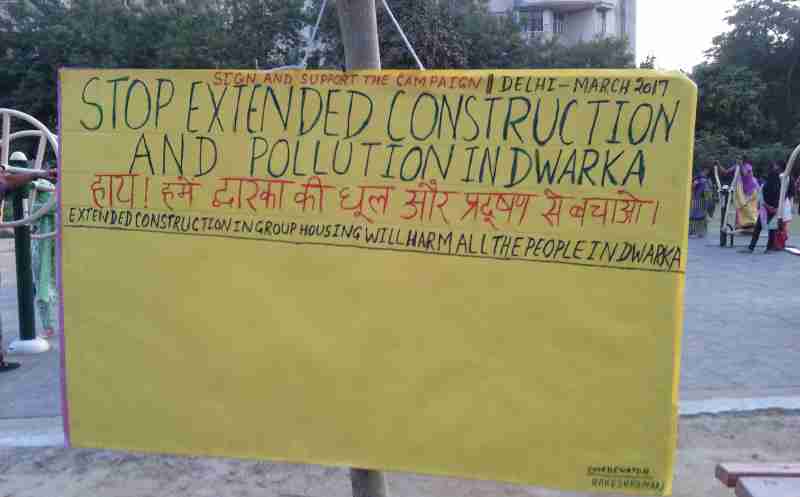
Many residents are supporting such constructions with profit motives, as they are expecting the prices of their flats to escalate after extended construction.
But they must realize that the hazardous effects of construction-related pollution will not only be on the residents of affected societies, but it will also harm the entire population of Dwarka. And that is a fact.
By Rakesh Raman, who is a government award-winning journalist and had been associated with the United Nations (UN) through United Nations Industrial Development Organization (UNIDO) as a digital media expert to help businesses use technology for brand marketing and business development. He also runs a free school for deserving children under his NGO – RMN Foundation.


